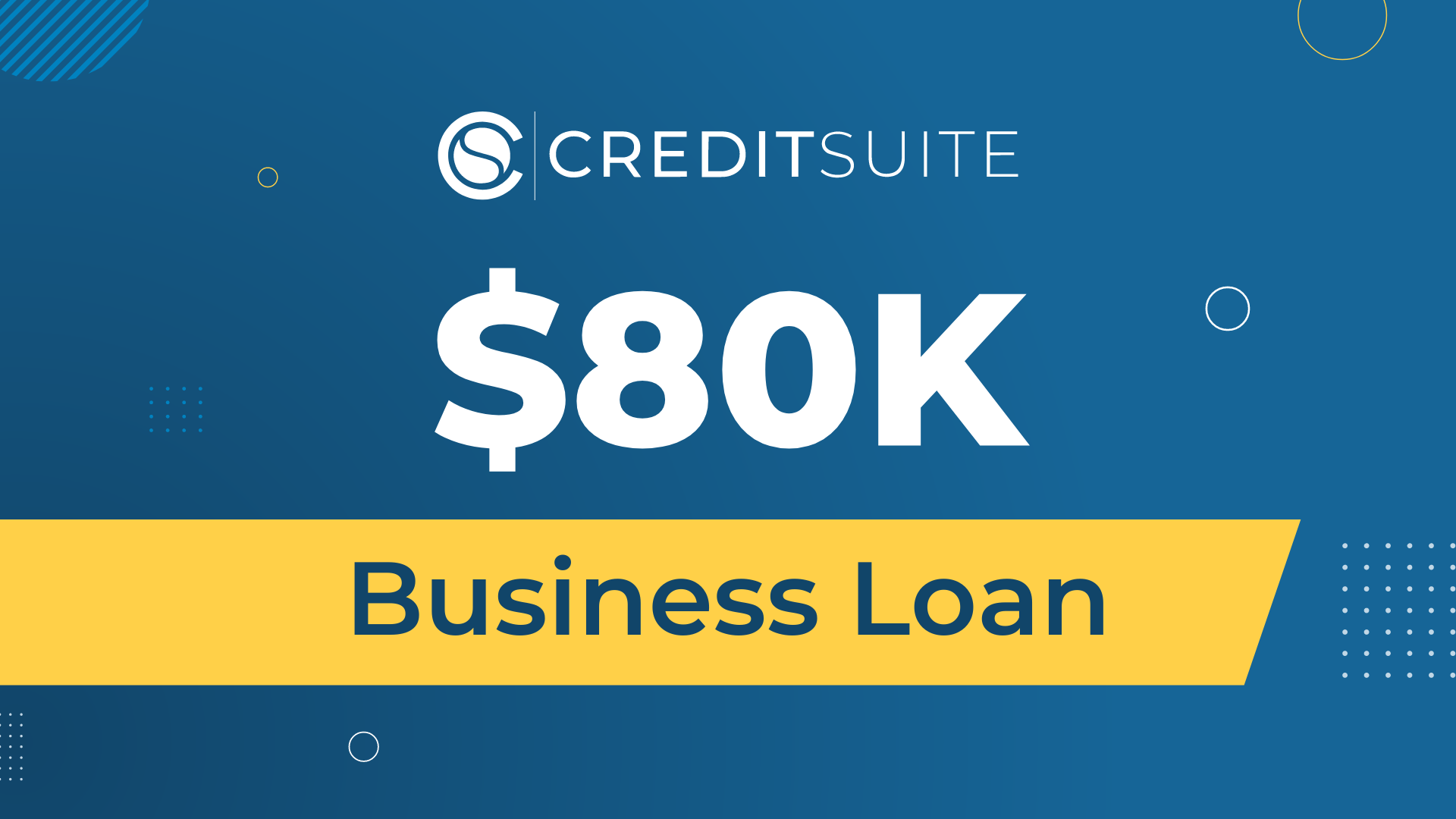Please note: Lending options, rates, and qualifications change regularly. The information in this post is based off of requirements as of original posting date of July 2, 2024.
Obtaining an $80,000 business loan marks a noteworthy milestone, and our handbook is crafted to assist you in navigating this journey. Each business loan and financing avenue has its unique requirements, underscoring the importance of selecting the right loan for your success.
As with all types of lending, you need to reach different requirements with the proper Fundability in order to fully qualify. This article is giving you the information you need to understand the starting points for some of the most common types of funding available. Additionally, it’s important to keep maximum approval amounts in mind when searching for funding. You will find each one we touch on in this article have a wide range of maximum limits. But with the correct combination, you have the possibility to reach those funding needs and wants much easier.
The table below has the requirements for each major business loan type.
The Best $80k Business Loans
| Loan Type | Requirements | Approval Difficulty |
| Bank Loan (Term Loan) | Good credit, 2 years in business, business cash flow | Hard |
| Business Line of Credit | Good credit, 2 years in business, business cash flow | Hard |
| SBA Loan | Good credit, 2 years in business, business cash flow | Hard |
| Credit Line Hybrid | Good credit | Easy (No Doc) |
| Business Credit Card | Good credit | Easy |
| Equipment Financing | Good credit | Easy |
| Merchant Cash Advance | Credit card sales, bad credit | Easy |
| Cash Flow Financing | Business cash flow, fair credit | Easy |
How to Qualify for a $80,000 Business Loan
Qualifying for a business loan depends on six essential elements. Traditional bank funding necessitates excellence in all of these areas, whereas alternative financing options may offer more flexibility. These elements encompass:
- Personal Credit: Numerous lenders specializing in small businesses anticipate the business owner to have robust personal credit scores.
- Business Credit: Having reliable business credit evaluations and profiles greatly aids in the process of qualifying for a loan.
- Business Income: Practically every type of business lending requires documentation verifying some form of income.
- Collateral: Approval for loans backed by assets, such as car loans, mortgages on business properties, and machinery loans, tends to be notably smoother.
- Time in Business: Commercial lenders often prefer a business track record of at least two to three years.
- Industry: Despite strong financial standings, certain sectors encounter difficulty in obtaining approval.

The Best $80k Business Loan Types
Bank Loans (Term Loans)
Traditional business loans provided by banks are referred to as term loans. These necessitate regular payments over a set “term” of about three or five years, featuring usually fixed interest rates.
Requirements: Bank term loans typically require small business owners to have a solid personal credit history (FICO Scores exceeding 680), a business operating for a minimum of two years, and yearly revenues totaling at least $100,000.
Business Line of Credit
Business lines of credit, akin to term loans, are commonly offered by traditional banks. While they boast low interest rates, qualifying for them can be challenging.
Upon approval, you receive a loan that functions like a credit card, allowing for repeated use. You’re assigned a credit limit, such as $80,000, and required to make gradual payments to settle the balance.
Requirements: Business lines of credit typically require small business owners to have strong personal credit (FICO Scores above 680), a business tenure of at least two years, and annual revenues surpassing $100,000.
SBA Loans

SBA Loans combine standard bank financing with government backing, ensuring lower interest rates and favorable terms. However, obtaining them can pose challenges.
There are several types of SBA loans, with the 7a and 504 loans being the most common options available.
Requirements: SBA loans vary in their prerequisites, but as a rule, they necessitate a period of operation (typically a minimum of one year), favorable personal credit scores, and a level of business income.
Credit Line Hybrid
Credit Suite presents the unique Credit Line Hybrid, offering no-documentation business loans ranging from $10,000 to $150,000 with quick approvals.
Requirements: To qualify for the Credit Line Hybrid, applicants need a solid personal credit score (FICO Score of 680+). Even new businesses with no operating history, no collateral, and limited cash flow are eligible to apply. The Credit Line Hybrid offers a relatively straightforward qualification process.
Business Credit Cards
Business credit cards offer an alternate financing avenue that’s relatively easy to qualify for. They operate akin to personal credit cards, granting access to a credit line for use as needed, followed by the responsibility to repay the balance in manageable monthly increments.
The primary difference between business and personal credit cards is that the former often provides higher credit limits. Additionally, by building business credit, small business owners can obtain these cards without solely depending on their personal credit backgrounds.
Requirements: Business credit cards typically mandate good personal credit, with some possibly requiring business revenue as well.
Equipment Financing

Equipment financing offers a simpler qualification process than alternative routes. It entails securing a loan or lease agreement, featuring fixed monthly payments for heavy equipment or machinery purchases.
If you’re in need of an $80,000 business loan for equipment procurement, this option is worth considering.
Requirements: In equipment financing, possessing a strong personal credit record is crucial, along with your willingness to engage in the process.
Merchant Cash Advance
Merchant cash advances rely on a business’s “merchant processing” system, which manages credit card transactions. In this scenario, the business owner’s creditworthiness and other criteria have little impact.
Upon obtaining the funds, repayment is automated through sales deductions, eliminating the need for fixed payment schedules.
Given their high financing costs, these advances should only be considered as a last resort if other funding options are available to the business owner.
Requirements: A steady stream of monthly credit card revenue, ideally surpassing $10,000, is sought after. Imperfect credit is permissible.
Cash Flow Financing
Given the constraints associated with merchant cash advances, Credit Suite provides an enhanced alternative called Cash Flow Financing. Similar to a merchant cash advance, eligibility for this financing primarily hinges on a business’s cash flow.
However, unlike merchant cash advances, Cash Flow Financing doesn’t restrict qualification to companies with credit card sales alone; all forms of cash flow are considered.
Requirements: Strong cash flow, at least $10,000 per month. Below average credit scores accepted.
Looking for another loan amount? Consider these articles: $30k Business Loan Options, $40k Business Loan Options, $50k Business Loan Options, $60k Business Loan Options, $70k Business Loan Options, $90k Business Loan Options, and $100k Business Loan Options.

